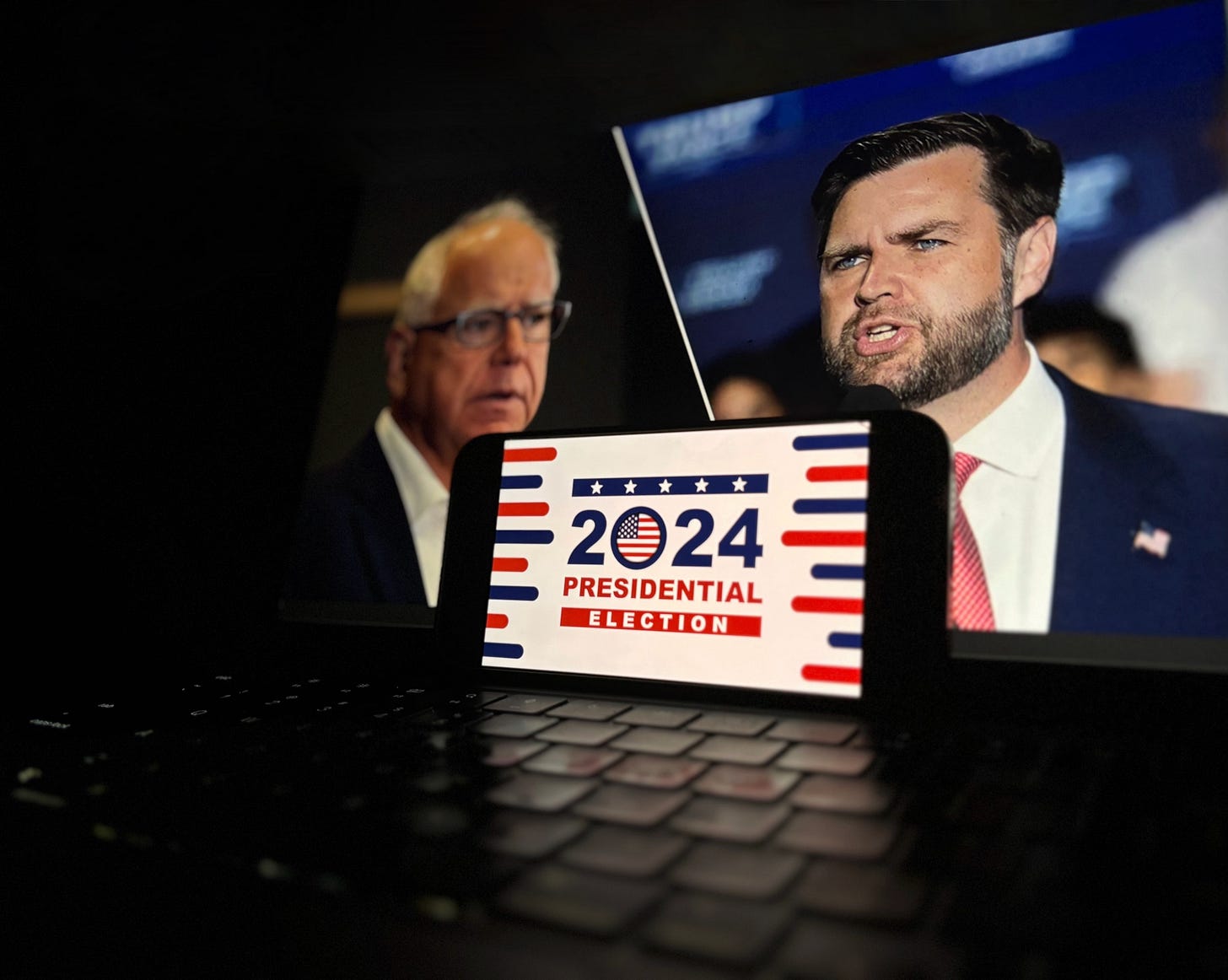The VP debate was boring, thankfully.
The case for more boring discourse on Georgetown's campus.
Every Georgetown policy nerd I’ve spoken to enjoyed the vice presidential debate last Tuesday. That means it was probably boring for most of America.
That’s a good thing.
Don’t take my word for it. Roughly 67 million people tuned into the presidential debate but only 43 million viewers watched Tuesday’s VP debate.
Why? While the presidential debate last month can be described, generously, as a dumpster fire, it was entertaining (not in a good way).
Platitudes. Sound bites. Controversy.
Meanwhile, the Vice Presidential debate seemed oddly…normal.
Senator Vance and Governor Walz shook hands, both before and after the debate. They reached several points of agreement as they referenced their kids and Midwestern upbringings. The candidates articulated their policy stances on issues like inflation, trade and energy, a contrast to the barrage of political attack ads currently scattered between sitcoms and college football.
Nonetheless, the event did leave two interesting takeaways.
Midwest Charm and Coastal Elitism
It is no coincidence that both vice-presidential candidates are from the Midwest. When the two top-of-ticket options are Donald Trump, a New York billionaire, and Kamala Harris, a California politician, it’s easy to see why the campaigns employed more “normal” VP candidates.
It is a reminder that there is so much more to the United States than Washington, D.C., New York City and San Francisco. It is a clear indication of both campaigns’ efforts to appear down-to-earth and folksy.
Is it working? Eh. At least they are trying.
We should be critical of how this may affect the election. Is there a political future that bridges the gap between coastal elites and everyone else—or is this a political fairy tale?
Subtle Rhetoric and Innuendos
Throughout the debate, Vance repeatedly referred to Walz as simply, “Tim.”
Was it an appeal to a cordial spirit or was it an attempt to portray Walz as unworthy of the title of governor? Probably a bit of both. Either way, it threw Walz off his game.
Vance also referred to the current White House as the “Harris Administration” instead of the Biden Administration, which doesn’t seem like an accident.
It is a smart move. When people start thinking in terms of the “Harris Administration,” it links her closer to the crisis at the southern border, inflation and global conflict. At one point, Walz seemed to unwittingly take the bait, before he corrected himself.
The move also serves another purpose. It allows us, the American public, to ask a reasonable question: have Harris’s actions as Vice President reflected her campaign platform?
Walz did not take all the bait, though. While his counterpart chose the informal route, he continued to call Vance by his formal title, “Senator Vance.”
It seems like he was appealing to the olden days of discourse when even your opponents were given the respect of their titles. It was a subtle, but savvy move.
Bring on the Boring
But what’s my point?
Yes, there were some politically competitive dynamics at play. The candidates were clearly trying to nail their messaging, but otherwise, it was pretty straightforward.
At least 24 million Americans, some of whom watched the presidential debate, weren’t interested in whether the candidates are from the Midwest, or if Vance called Walz “Tim,” or for that matter anything else I analyzed.
The debate was boring. It focused more—albeit still not very much—on each candidate’s policy proposals. However, that boring debate brought a much-needed breath of fresh air. Even amid a politically tumultuous time, brief bouts of civility remind us that we can be better.
To all those studying at Georgetown, think of this: we have only ever known a relatively polarized version of American politics. Just because that is all we have seen, doesn’t mean it is all there is.
The debate showed that, with its focus on policy proposals and an appeal to underlying agreement, we at least got a glimpse of what a healthier discourse would look like.
So Georgetown, take some notes and bring on the boring!
When it comes to our debates on campus, let’s bring in a little bit of that fresh air to our own lives. Don’t appeal to platitudes or slogans. Let’s have focused and articulate conversations about this upcoming election.
Solid, detailed and boring conversations.




